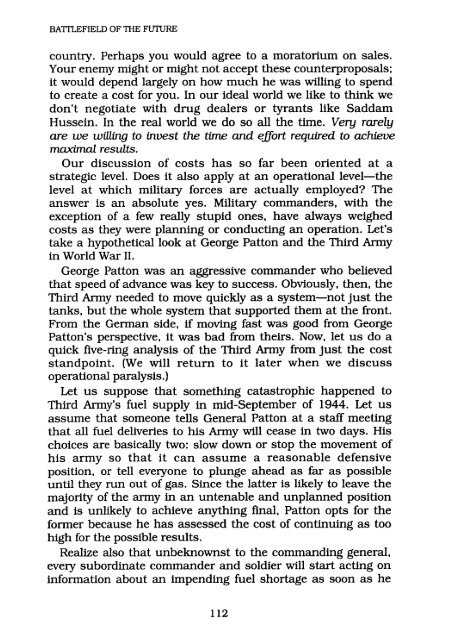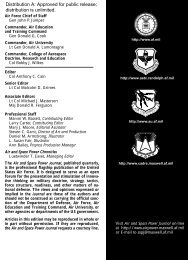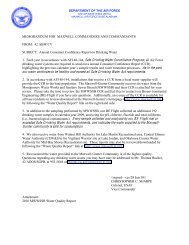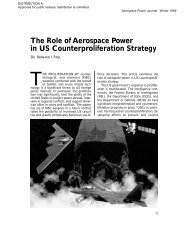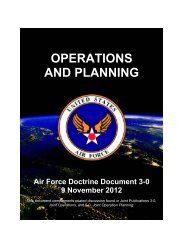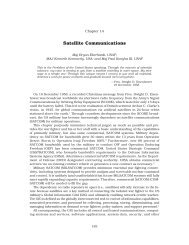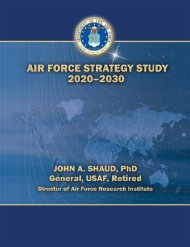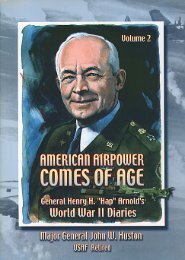BATTLEFIELD OF THE FUTURE
Battlefield of the Future - Air University Press
Battlefield of the Future - Air University Press
Create successful ePaper yourself
Turn your PDF publications into a flip-book with our unique Google optimized e-Paper software.
<strong>BATTLEFIELD</strong> <strong>OF</strong> <strong>THE</strong> <strong>FUTURE</strong><br />
country . Perhaps you would agree to a moratorium on sales .<br />
Your enemy might or might not accept these counterproposals ;<br />
it would depend largely on how much he was willing to spend<br />
to create a cost for you . In our ideal world we like to think we<br />
don't negotiate with drug dealers or tyrants like Saddam<br />
Hussein . In the real world we do so all the time . Very rarely<br />
are we willing to invest the time and effort required to achieve<br />
maximal results .<br />
Our discussion of costs has so far been oriented at a<br />
strategic level . Does it also apply at an operational level-the<br />
level at which military forces are actually employed? The<br />
answer is an absolute yes . Military commanders, with the<br />
exception of a few really stupid ones, have always weighed<br />
costs as they were planning or conducting an operation . Let's<br />
take a hypothetical look at George Patton and the Third Army<br />
in World War II .<br />
George Patton was an aggressive commander who believed<br />
that speed of advance was key to success . Obviously, then, the<br />
Third Army needed to move quickly as a system-not just the<br />
tanks, but the whole system that supported them at the front .<br />
From the German side, if moving fast was good from George<br />
Patton's perspective, it was bad from theirs . Now, let us do a<br />
quick five-ring analysis of the Third Army from just the cost<br />
standpoint . (We will return to it later when we discuss<br />
operational paralysis .)<br />
Let us suppose that something catastrophic happened to<br />
Third Army's fuel supply in mid-September of 1944 . Let us<br />
assume that someone tells General Patton at a staff meeting<br />
that all fuel deliveries to his Army will cease in two days . His<br />
choices are basically two : slow down or stop the movement of<br />
his army so that it can assume a reasonable defensive<br />
position, or tell everyone to plunge ahead as far as possible<br />
until they run out of gas . Since the latter is likely to leave the<br />
majority of the army in an untenable and unplanned position<br />
and is unlikely to achieve anything final, Patton opts for the<br />
former because he has assessed the cost of continuing as too<br />
high for the possible results .<br />
Realize also that unbeknownst to the commanding general,<br />
every subordinate commander and soldier will start acting on<br />
information about an impending fuel shortage as soon as he


